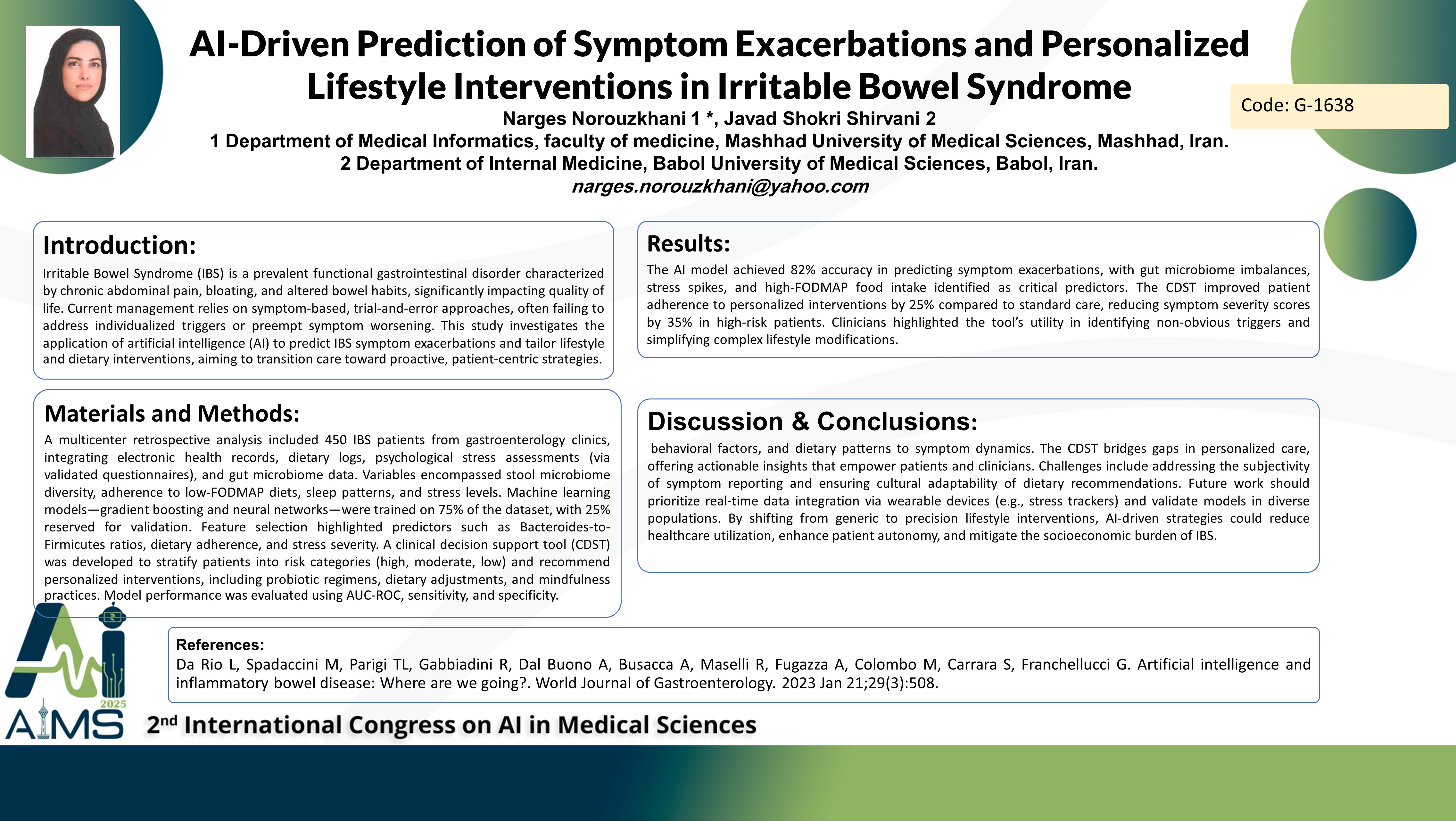AI-Driven Prediction of Symptom Exacerbations and Personalized Lifestyle Interventions in Irritable Bowel Syndrome
Code: G-1638
Authors: Narges Norouzkhani * ℗, Javad Shokri Shirvani
Schedule: Not Scheduled!
Tag: Clinical Decision Support System
Download: Download Poster
Abstract:
Abstract
Background and Objective: Irritable Bowel Syndrome (IBS) is a prevalent functional gastrointestinal disorder characterized by chronic abdominal pain, bloating, and altered bowel habits, significantly impacting quality of life. Current management relies on symptom-based, trial-and-error approaches, often failing to address individualized triggers or preempt symptom worsening. This study investigates the application of artificial intelligence (AI) to predict IBS symptom exacerbations and tailor lifestyle and dietary interventions, aiming to transition care toward proactive, patient-centric strategies. Materials and Methods: A multicenter retrospective analysis included 450 IBS patients from gastroenterology clinics, integrating electronic health records, dietary logs, psychological stress assessments (via validated questionnaires), and gut microbiome data. Variables encompassed stool microbiome diversity, adherence to low-FODMAP diets, sleep patterns, and stress levels. Machine learning models—gradient boosting and neural networks—were trained on 75% of the dataset, with 25% reserved for validation. Feature selection highlighted predictors such as Bacteroides-to-Firmicutes ratios, dietary adherence, and stress severity. A clinical decision support tool (CDST) was developed to stratify patients into risk categories (high, moderate, low) and recommend personalized interventions, including probiotic regimens, dietary adjustments, and mindfulness practices. Model performance was evaluated using AUC-ROC, sensitivity, and specificity. Findings: The AI model achieved 82% accuracy in predicting symptom exacerbations, with gut microbiome imbalances, stress spikes, and high-FODMAP food intake identified as critical predictors. The CDST improved patient adherence to personalized interventions by 25% compared to standard care, reducing symptom severity scores by 35% in high-risk patients. Clinicians highlighted the tool’s utility in identifying non-obvious triggers and simplifying complex lifestyle modifications. Conclusion: This study underscores AI’s potential to transform IBS management by linking microbiome data, behavioral factors, and dietary patterns to symptom dynamics. The CDST bridges gaps in personalized care, offering actionable insights that empower patients and clinicians. Challenges include addressing the subjectivity of symptom reporting and ensuring cultural adaptability of dietary recommendations. Future work should prioritize real-time data integration via wearable devices (e.g., stress trackers) and validate models in diverse populations. By shifting from generic to precision lifestyle interventions, AI-driven strategies could reduce healthcare utilization, enhance patient autonomy, and mitigate the socioeconomic burden of IBS.
Keywords
Artificial Intelligence, Irritable Bowel Syndrome (IBS)
